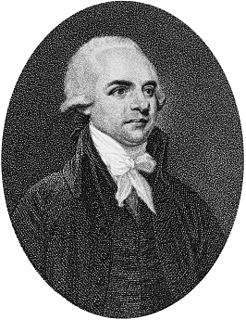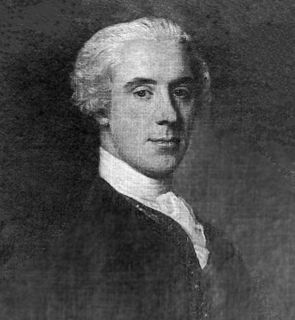History
The first number came out about the middle of October 1773, and it was discontinued after the publication of the number for August 1776. Early advantages were negated by Stuart's tendency to pursue private vendettas against lawyers and other historians; William Smellie the printer struggled to contain him. Stuart's slashing article on the Elements of Criticism by Lord Kames, was completely metamorphosed by Smellie. Stuart sometimes had his own way: when David Hume reviewed and praised the second volume of Robert Henry's History of Great Britain, the article was cancelled and one by Stuart substituted for it, which went the other extreme. [1] Behind Smellie was William Creech, who launched a number of periodicals. [2]
The climax was reached in an article by Stuart and A. Gillies, written over the protests of Smellie, on Lord Monboddo's Origin and Progress of Language . It was scurrilous and abusive, ran through several numbers of the fifth volume, and caused the magazine to be stopped. [1]

James Beattie was a Scottish poet, moralist, and philosopher.

Sir William Forbes, 6th Baronet of Monymusk and Pitsligo (1739–1806) was a Scottish banker. He was known also as an improving landlord, philanthropist and writer.
Peter George Patmore was an English author.
William Empson was an English barrister, professor and journalist.
Andrew Crichton (1790–1855) was a Scottish biographer and historian.

Thomas Trotter (1760–1832) was a Scottish naval physician and author who was a leading medical reformer in the Royal Navy and an ardent critic of the slave trade. Trotter was born in Melrose, Roxburghshire, and studied medicine under Alexander Monro (secundus) in Edinburgh. His major work, the Medicina Nautica, was published in 1802 and provides a detailed examination of the state of naval medicine during the French Revolutionary Wars.
Rev John Logan FRSE (1748–1788) was a minister in Leith, Scotland, a popular preacher known also as a historian. Self-destructive behaviour saw him end his life as a hack writer in London.
Tait's Edinburgh Magazine was a monthly periodical founded in 1832. It was an important venue for liberal political views, as well as contemporary cultural and literary developments, in early-to-mid-nineteenth century Britain.

Greyfriars Kirkyard is the graveyard surrounding Greyfriars Kirk in Edinburgh, Scotland. It is located at the southern edge of the Old Town, adjacent to George Heriot's School. Burials have been taking place since the late 16th century, and a number of notable Edinburgh residents are interred at Greyfriars. The Kirkyard is operated by City of Edinburgh Council in liaison with a charitable trust, which is linked to but separate from the church. The Kirkyard and its monuments are protected as a category A listed building.

Thomas Arnold was an English physician and writer on mental illness.
Sir John Eliot, 1st Baronet was a Scottish physician and Physician to the Prince of Wales.

William Mure, known as others of his family as William Mure of Caldwell, was a Scottish lawyer and politician. He became a baron of the Scots exchequer, and was a friend of Prime Minister Lord Bute and David Hume.

William Benson Earle (1740–1796) was an English philanthropist.
John Gillies (1712–1796) was a Church of Scotland minister and theological writer.
Dr William Rose (1719–1786) was a Scottish schoolmaster and classical scholar.
William Tait (1793–1864) was a Scottish publisher, best known for Tait's Magazine.

Adam Gillies, Lord Gillies (1760–1842) was a Scottish judge.

Gilbert Stuart (1742–1786) was a Scottish journalist and historian.
Prof George Stuart FRSE LLD was an 18th-century Scottish classicist. He was joint founder of the Royal Society of Edinburgh in 1783.
This page is based on this
Wikipedia article Text is available under the
CC BY-SA 4.0 license; additional terms may apply.
Images, videos and audio are available under their respective licenses.
![]()








